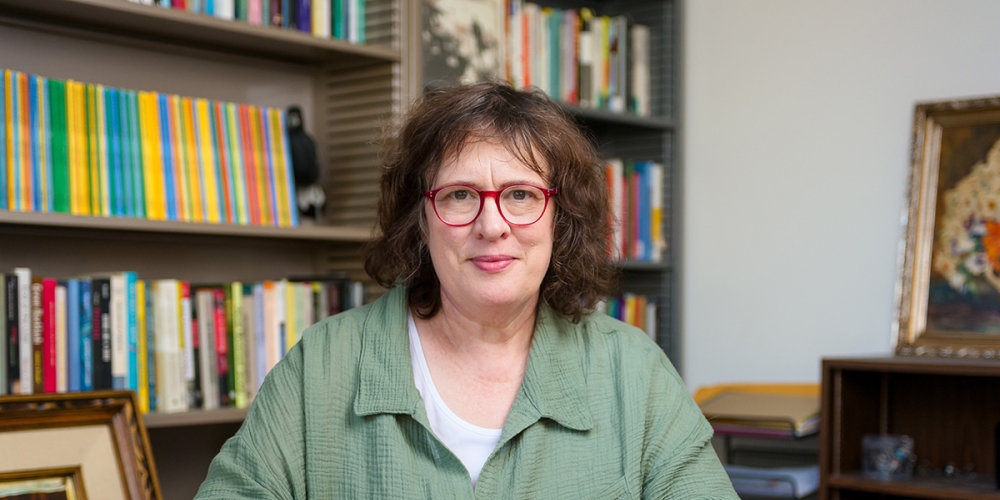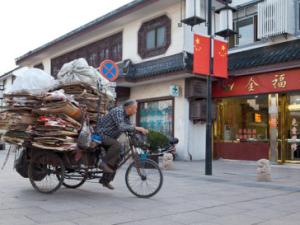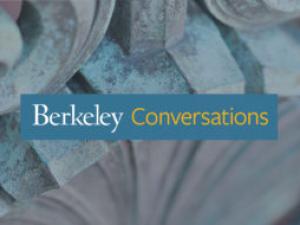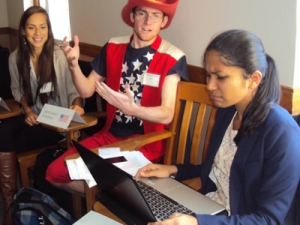

Research Bio
As a nationally and internationally recognized expert in global environmental politics and governance, Kate O'Neill's research addresses how (and how well) the global community manages complex, unpredictable, and distributionally unjust problems, from the climate crisis to biodiversity loss, to wastes and chemical pollution. Specifically, her work on the global and local politics of wastes and recycling has reached wide academic and public audiences: she is fascinated by the complexities of wastes as a global resource, and the implications of seismic global shifts on local recycling, waste work, and zero waste policies in the US and elsewhere. On the UC Berkeley campus, she is Associate Dean for Instruction and Student Affairs at the Rausser College of Natural Resources. She has chaired the Society and Environment Division of ESPM, and served on campus and UC system wide taskforces on student experiences and curriculum development.
She holds a Ph.D. in Political Science from Columbia University, and was a post-doctoral fellow at Harvard University's Kennedy School of Government. She has written three books, Waste Trading Among Rich Nations: Building a New Theory of Environmental Regulation (MIT Press, 2000), The Environment and International Relations (Cambridge University Press 2009, 2nd edition 2017), and Waste (Polity Press 2019).
Waste, published by Polity Press is about waste as a globalized resource, though one that comes with magnified risks and governance challenges. It includes cases on China and the global plastic scrap trade, waste work and labor in the global economy, the global political economy of electronic wastes and food waste, and the global circular economy. It was featured on National Public Radio's Fresh Air (September 12, 2019). She has also been interviewed on many other local, national, international media outlets, including NPR’s Here and Now and Marketplace, The Economist, The New York Times, CBS, CNN International and Al Jazeera International.
The Environment and International Relations establishes a framework to understand the complex political dynamics of global environmental governance, examining actors, norms and ideas, changing balances of power and new challenges and opportunities in this critical area of global politics.
Current research projects include: the state of US recycling policy and practice in transition, including the impacts of China's ban on scrap imports and COVID-19 (with former PhD student Dr. Jessica Heiges); the global governance of wastes and plastics, including how differences between “waste” and “scrap” might be adjudicated at the global level; connecting waste and climate change; and following direct experience with the impacts and aftermath of mega-fires in California and her home country, Australia, disaster waste from a policy and governance perspective. Her current lab members work on financial mecanisms for managing global plastics wastes, the global political economy of textiles waste, political impacts of climate finance in Guatemala, and the politics of care and urban environmental justice in Oakland. Kate also works on the development of pedagogical innovations in teaching Global Environmental Justice and Climate Governance,
Other projects have included: new and innovative methods for studying global environmental politics and governance, where problems are complex, multi-scalar, and unpredictable, including the application of visualization tools for understanding global environmental problems. Work on social and environmental movements includes a study of transnational protest movements in the early 2000s. She also writes on the implications for social science of environmental science fiction.
She has published in The Journal of Cleaner Production, WIRES Climate Change, The Annual Review of Environment and Resources, Journal of Environmental Studies and Sciences, International Studies Review, The Annual Review of Political Science, and Global Environmental Politics and The Conversation among other venues.
Kate teaches global environmental politics at graduate and undergraduate levels (large lecture and small seminar formats) as well as other courses, including a newly developed Waste and Society course. She is very familiar with on-line teaching (asynchronous and synchronous), and how to create online courses that work well for students and instructors.
In terms of service to the broader campus community, she has held and holds leadership positions in her department and college as detailed above. She has been Head Graduate Advisor and Vice Chair for Instruction for her department. Between 2014 and 2020 she was a Resident Faculty member at UC Berkeley, living in a residential hall of 1200 students, with the goal of helping first year students bridge their residential and campus lives. Specifically, she worked with two live-learn communities, the Global Environment Theme House and Unity House. She previously served as co-editor-in-chief of the MIT Press journal Global Environmental Politics and as Chair of the Environmental Studies Section of the International Studies Association.
Research Expertise and Interest
wastes and the circular economy, global environmental governance, climate change politics, globalization, environmental politics and policy, environmental movements, waste plastic recycling
In the News
Berkeley Talks: The global politics of waste
Climate change and COVID-19: Can this crisis shift the paradigm?
Classroom Treaty Talks Speak Volumes on Climate Politics
Featured in the Media
Kate O'Neill, professor of environmental science, policy and management at the University of California, Berkeley, is a guest on Studio 2 from WHYY to talk about better ways to handle our trash.
Associate environmental science, policy, and management professor Kate O'Neill joins Fresh Air to talk about her new book, Waste, about recycling and the global politics involved in waste management. "Once you throw something away, you've got to think about where's it going to go next," she says. Link to audio. Professor O'Neill has also discussed this topic recently on Marketplace (link to audio), Al Jazeera, CGTN, and WNYC New York Public Radio (link to audio).



